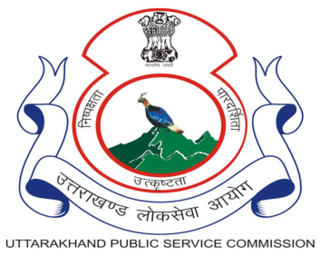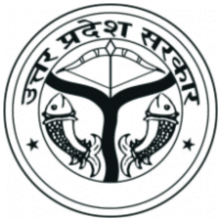
The Civil Services Examination (CSE) is a standardized test in India conducted by the Union Public Service Commission for recruitment to higher civil services in the Government of India, such as the All India Services and Central Civil Services.
The Superintendent of Police (SP) is a rank in Indian police forces held by an officer serving as the head of a rural police district. Officers of the same rank may also head specialised wings or units. In cities under commissionerate system, an SP may serve as the Deputy Commissioner of Police (DCP) under the Commissioner of Police. The SP reports directly to the district magistrate (collector), the administrative head of a revenue district, who has general control and direction over police administration. Additionally, the SP sends monthly reports to the Director General of Police (DGP) via the Inspector General of Police (IGP) and the Deputy Inspector General of Police (DIG).

In Bangladesh, India, and Pakistan, a tehsildar, talukdar, or mamlatdar is a land revenue officer accompanied by revenue inspectors. They are in charge of obtaining taxes from a tehsil with regard to land revenue. A tehsildar is also known as an executive magistrate of the relevant tehsil. The immediate subordinate of a tehsildar is known as a naib tehsildar.
The West Bengal Civil Service (Executive) (Paśchimboṅgo Nāgarik Sēbā), commonly known as W.B.C.S. (Exe.), is the civil service of the Indian state of West Bengal. The Public Service Commission of West Bengal conducts competitive examinations for W.B.C.S. (Exe.) and other similar posts in three phases each year: Preliminary, Mains, and Personality Test. W.B.C.S. is regarded as the most prestigious public service within West Bengal.
Rajasthan Administrative Service, popularly known as RAS, is a state civil service of state Rajasthan along with Rajasthan Accounts Service, Rajasthan Police Service and other services. The officers are included in the state cadre of civil service officers. RAS officers undergo two years training at HCM Rajasthan State Institute of Public Administration. Cadre controlling authority for this service is Department of Personnel, Government of Rajasthan. The head of this service is Chief Secretary.

Police services in India comprises the Indian Police Service (IPS), DANIPS, and Pondicherry Police Service recruited by the central government, along with various State Police Services recruited by state governments. As policing is a state subject, the structure and organization of police forces vary across states. In most state police forces, ranks below Deputy Superintendent of Police (DSP) are considered subordinates, while DSP and above are supervisory ranks. These officers are organized in a structured hierarchical order.

Sashastra Seema Bal is a central armed police force in India under the Ministry of Home Affairs. It is responsible for guarding India’s borders with Nepal and Bhutan.
The State Police Services (SPS) is an umbrella term for police services under different state governments in India. In India, police is a state subject and each state has its own police service. For example, Maharashtra Police Service (MPS) for Maharashtra Police or Provincial Police Service (PPS) for Uttar Pradesh Police. Its counterpart in the central government is the Indian Police Service (IPS), which is a higher civil service. Recruitments are done through the respective state's Public Service Commission (PSC).

The Rajasthan Public Service Commission (RPSC) is a government body of the Rajasthan, India, established by the Constitution of India, to select applicants for various state government jobs according to the merits of the applicants and the rules of reservation. It advises the government of Rajasthan on all matters relating to the rules of recruitment, appointment, transfer, promotion, professional standards and disciplinary actions. In this capacity, the commission organizes recruitment procedures, competitive examinations and screening tests, and candidate interview boards for the appointment of candidates within the state.

The Andhra Pradesh Police is the law enforcement agency of the state of Andhra Pradesh, India. Public order and police being a state subject in India, the police force is headed by the Director general of police, Ch. D. Tirumala Rao, IPS At Headquarters Amaravathi, Andhra Pradesh.

The Central Armed Police Forces (CAPF) consist of seven armed police organizations under the Ministry of Home Affairs (MHA), Government of India, tasked with maintaining internal security, law and order, counterinsurgency, and protecting borders. Previously referred to as "paramilitary" forces, the term was officially discontinued in 2011.

The Uttar Pradesh Public Service Commission, abbreviated as UPPSC, is a government body of the state of Uttar Pradesh, India, responsible for the recruitment of candidates for various government jobs, including the Provincial Civil Service (PCS), under the Government of Uttar Pradesh through competitive examinations. It was established by the Constitution of India, as per the provisions from Articles 315 to 323 of Part XIV of the constitution, titled Services Under the Union and the States, provide for a Public Service Commission for the Union and for each state.
Staff Selection Commission (SSC) is an organisation under the Government of India to recruit staff for various posts in the various ministries and departments of the government of India and in subordinate offices and agencies.

The Bihar Public Service Commission (BPSC) is a government body under the state of Bihar, India, established by the Constitution of India, to recruit candidates for various state government jobs in Bihar through competitive examinations.

Assistant Commandant is a title often given to the second-in-command of a military, uniformed service, training establishment or academy. This usage is common in English-speaking nations, and in some countries it may be a military or police rank.

The Uttarakhand Public Service Commission (UKPSC) is a government agency of the state of Uttarakhand, India, responsible for the recruitment of candidates for various state government jobs through competitive examinations.
The Bihar Police Subordinate Services Commission (BPSSC) is a Group 'C' civil service recruitment body for Bihar Police created by an Act of the Bihar Legislative Assembly. The commission's purpose is to select applicants in various government departments for Group 'C' staff jobs in the Bihar Police Through Competitive Examination according to the merits of the applicants and the rules of reservations.
Central Selection Board of Constable (CSBC)(Hindi: केन्द्रीय चयन पर्षद [सिपाही भर्ती]) is an organization under Government of Bihar to recruit for Group D posts in Bihar Police. The board is headed by a three-star rank Additional Director General or Director General level police officer. Current chairman of the commission is K.S. Dwivedi.

Provincial Forest Service, often abbreviated to as PFS, is one of the state natural resource services under Group 'A' and Group 'B' state service of Government of Uttar Pradesh responsible for ensuring the ecological stability of the country via thorough protection and participatory sustainable forestry, wildlife and environment. It is also the feeder service for Indian Forest Service in the state.
The Uttarakhand Subordinate Service Selection Commission (UKSSSC) is a government organization in the state of Uttarakhand, India, responsible for conducting examinations and recruiting candidates for various subordinate services within the state. Established under the Uttarakhand Legislative Assembly Act, the commission aims to ensure transparent and merit-based recruitment processes for positions in various state departments.











